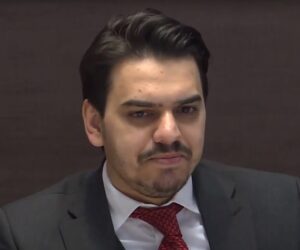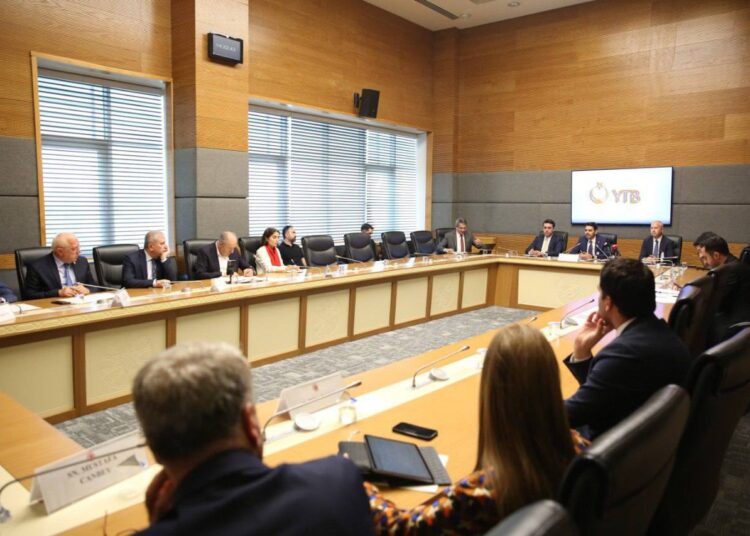Abdullah Bozkurt/Stockholm
The Turkish government seeks to exert greater influence over the domestic politics of European nations by actively supporting Turkish and Muslim communities in their political engagement, as revealed by the head of the government’s diaspora agency during testimony before a parliamentary committee.
“It is very important for us that our citizens become more aware, especially regarding political participation, and that they engage with the political parties there,” said Abdullah Eren, head of the Presidency for Turks Abroad and Related Communities (Yurtdışı Türkler ve Akraba Topluluklar Başkanlığı, YTB).
Eren said he could reveal more in a closed-door session, from which the record of his comments would not be made public. He noted that smaller parties established by the Turkish diaspora in countries like Germany and France have not succeeded, lamenting the fact that Turks working in mainstream parties have also been unable to secure senior roles.
“We recognize the urgency of this matter [engaging in politics],” Eren said during a hearing on July 17 in the newly established Subcommittee for Turks Abroad and Related Communities, which is part of the Foreign Affairs Committee in parliament.
The committee is chaired by Seda Gören Bölük, a lawmaker from President Recep Tayyip Erdogan’s ruling Justice and Development Party (AKP), whose family origins are in Kosovo. She has been active in engaging diaspora groups in the Balkans, especially in Greece.
According to Bölük, the target population in the diaspora is nearly 40 million, consisting of approximately 7 million Turks and over 30 million people from related communities in other countries. She vowed to do everything possible to address issues concerning diaspora groups in order to empower the Turkish nation.
Minutes from the Turkish parliamentary subcommittee hearing during which the Turkish diaspora agency made a presentation on the agency’s work abroad:
The subcommittee and the YTB, supported by Turkish agencies that work with diaspora groups, such as Turkish intelligence organization MIT, the foreign service, the Maarif Foundation, the Religious Affairs Directorate (Diyanet), the Yunus Emre Institute and the Turkish Cooperation and Development Agency (TIKA), have been actively working to place more pro-Turkish politicians on the political map abroad.
Their efforts are particularly focused on Europe, where the bulk of Turkish diaspora groups reside.
In the last decade the Erdogan government has supported the establishment of smaller political parties in Europe, particularly those driven by religious agendas. It has endorsed candidates working in established mainstream parties, expecting them to act as proxies for Turkish government policies.
However, the results have been unsatisfactory so far, prompting the Turkish government to vow increased efforts to fulfill what it describes as a strategic goal.
To calibrate Turkey’s approach to diaspora groups, Turkish government agencies have been conducting comprehensive field studies, particularly in Europe. These studies aim to make adjustments, correct mistakes and overcome obstacles hindering their goal of turning diaspora groups into leverage for political goals.
According to an internal survey conducted by the YTB among the youth in the Turkish diaspora, estimated to be around 2 million strong and now in its fourth generation, one-third of respondents expressed a desire to be proactive in the politics of European countries and sustain their campaigns.
Eren revealed these findings in his speech to lawmakers in the committee. Another third intends to conceal their true intentions and launch their campaigns on behalf of Turkey only after securing key positions in mainstream political parties. The remaining third prefers to yield, believing that no matter how much they fight, nothing will change and thus choose to focus on their own interests.

Eren made clear that he advocates for a more proactive approach. He informed lawmakers that the agency has been working on a special project named Active Citizenship, aimed at encouraging young people to enter politics and engage with civil society organizations.
“In this context, we conducted a series of programs, especially in Germany,” he said. To enhance the Turkish government’s influence in German society, the YTB also encourages Turks to participate in trade chambers and university student assemblies. “Our young people need to be more active in these countries, especially in politics,” he added.
“Some of our young people think, ‘No matter what, I can’t exist in these countries, especially in the major parties — in the case of Germany, parties such as the SPD [Social Democratic Party] or the CDU [Christian Democratic Union]— with my own identity. Either I have to present myself differently, or I will hit that glass ceiling.’ In our conversations with many of our young people, we have seen that these opinions exist,” he explained.
According to Eren, the YTB has launched a series of projects to show Turks in the diaspora that they do not need to feel marginalized. These projects have brought them together with role models and encouraged a proactive approach to political engagement. He cited Serap Güler, a German politician of Turkish background in the CDU and a member of the Bundestag since 2021, as an example. Despite expressing some criticism towards Turkey in the past, Güler has maintained contact with the Turkish embassy and Turkish government institutions, Eren stated.
The remarks by the Turkish diaspora agency president in parliament confirm what the YTB outlined in this year’s report titled “Strategic Plan for 2024-2028.” The plan’s stated goal is to foster a stronger allegiance to Turkey on the part of people in the Turkish diaspora, with increased financial and other support from the Erdogan government. It also emphasizes that the YTB will assist the diaspora in navigating legal and administrative challenges in host countries as they assert themselves in politics and other areas.

The YTB lamented in the report that administrative and legal challenges in countries where Turkish diaspora groups are active are hindering the organization from achieving its strategic goals. To overcome these constraints, it recommended several policy actions to the Erdogan government. The YTB urged the government to utilize its diplomatic influence and public diplomacy tools to exert pressure on foreign countries to lift these restrictions on Turkish diaspora groups.
The YTB also recommended cooperating with other Muslim religious groups in foreign countries to overcome restrictions on the Turkish diaspora.
The diaspora agency has already been collaborating with numerous groups operating in Europe and other continents, providing them with funding and logistical and technical support to enhance their effectiveness. The YTB recently participated in a program organized by the Union of International Democrats (UID), an organization that acts as a foreign interest group representing Erdogan’s ruling AKP abroad, held in Ankara in early May.
The program, funded by the Erdogan government, aimed to enhance the capacity of and provide training for the UID. Eren, head of the YTB, was the keynote speaker at the event.
Moreover, the YTB brings 4,000 young men and women to Turkey every year under various schemes for training and education in camps maintained by Turkey’s Ministry for Youth and Sports. According to Eren, many young Turkish engineers studying in Europe have been enrolled in internship programs in what he termed “critical industries,” such as defense and military technologies. He identified state-owned defense contractors like Aselsan and Tusaş as venues where these individuals were recruited for internships.
Both in Eren’s presentation during the parliamentary committee hearing and in the report, groups critical of and opposed to the Erdogan government were deemed a threat to achieving the YTB’s stated goals since they undermine the Turkish government’s policies in the diaspora. This includes the Gülen movement, Kurdish opposition groups and Alevis.
It appears the the Erdogan government’s aggressive campaign to turn diaspora groups into proxies for promoting its political agenda is set to continue in the coming years. This strategy is certain to remain a thorny issue in Turkey’s bilateral relations with other countries, which view such engagement as blatant interference in their domestic affairs.












